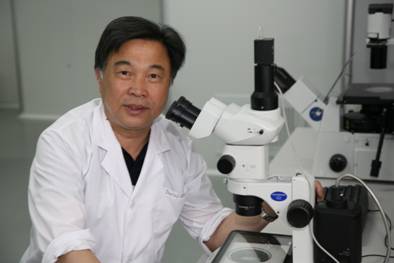Events
Public Lecture by Professor Yang Huanming, President & Professor,Beijing Genomics Institute – Shenzhen, China"Genomics and Personalized Medicine"(in English)
18 Jul 2011
5:00 – 6:00 pm
Cho Yiu Hall, G/F, University Administration Building, The Chinese University of Hong Kong
Free (please reserve seat through online registration)
3943 8893
Biography of Professor Yang Huanming
President & Professor,
Beijing Genomics Institute – Shenzhen, China
Huanming Yang co-founded BGI (formerly Beijing Genomics Institute) in 1999 and is currently its President and Professor. He and his collaborators have made a significant contribution to the Human Genome Project, the HapMap Project, and the 1000 Genomes Project, as well as to sequencing and analyzing genomes of the first Asian individual, as well as rice, chicken, silkworm, giant panda, ant, cucumber, maize, soybean, and many microorganisms. Dr. Yang has received many awards and honors, including Research Leader of the Year by Scientific American in 2002 and Award in Biology by the Third World Academy of Sciences (TWAS) in 2006. He was elected as a foreign member of EMBO in 2006, an Academician of the Chinese Academy of Sciences in 2007, a fellow of TWAS in 2008, and a foreign Academician of Indian National Science Academy in 2009.
"Genomics and Personalized Medicine"
Abstract
2011 sees the 10th anniversary of the first publication of the draft sequence of the human genome generated by the International Human Genome Project (HGP). With the DNA sequence in hands as the reference, we further realize that we know so little about life and ourselves.
The HGP has cultivated a new science, GENOMICS, and opened the door to Personalized Medicine which is characterized by and based on personal genome sequencing. Genomics will bring more knowledge about human genome variations especially the population- or even individual-specific variations and those related to diseases, about evolution of our genomes especially the adaptation-related genes, about the microorganisms in our body especially host-microbe interactions, about the motablic/ signaling pathways and genome regulation network.
Sequencing technology will reshape the whole field of biomedicine. The application of sequencing has been extended from Southern Sequencing (whole genome/ exome sequencing, trace/single cell sequencing, targeted sequencing, …), to Northern Sequencing (whole transcriptome sequencing, digital expression profiling, micro- and all other RNAseq), Western Sequencing (translatome/ regulatome sequencing, and other CHiP+seq), to Eastern Sequencing (methylome and other epigenome sequencing), and even more.




